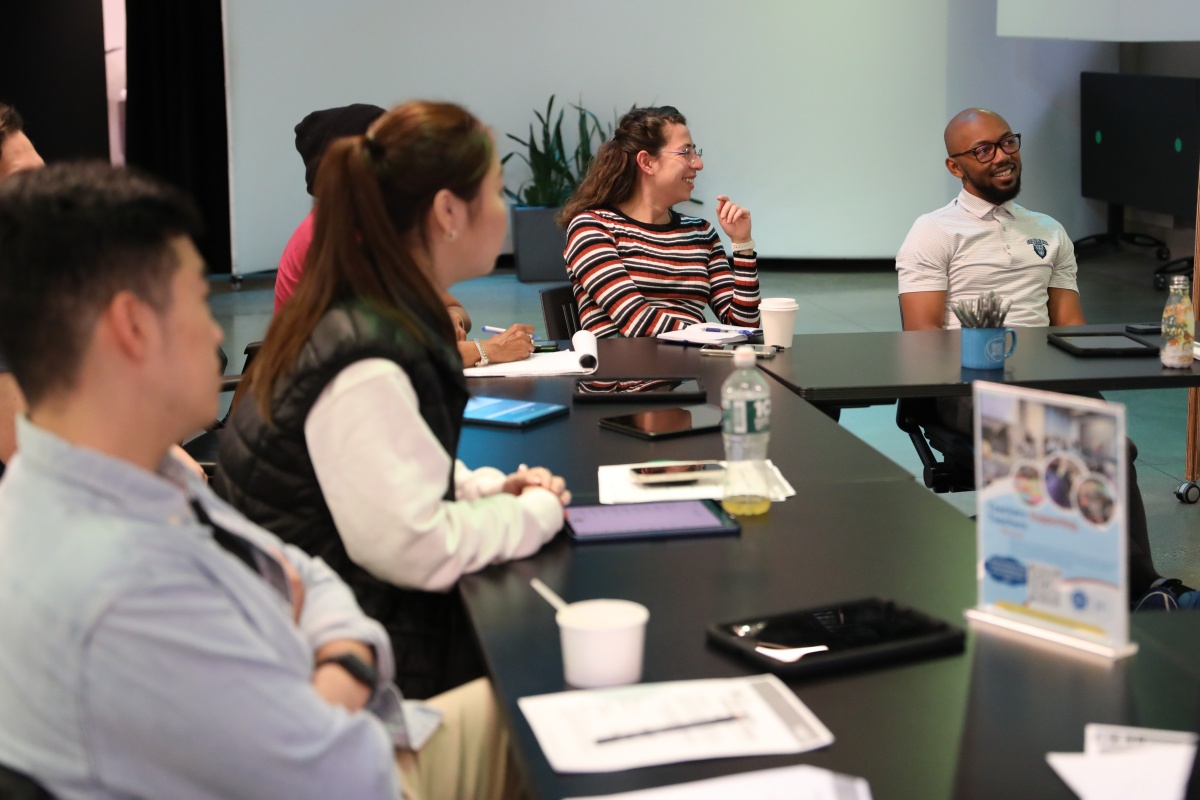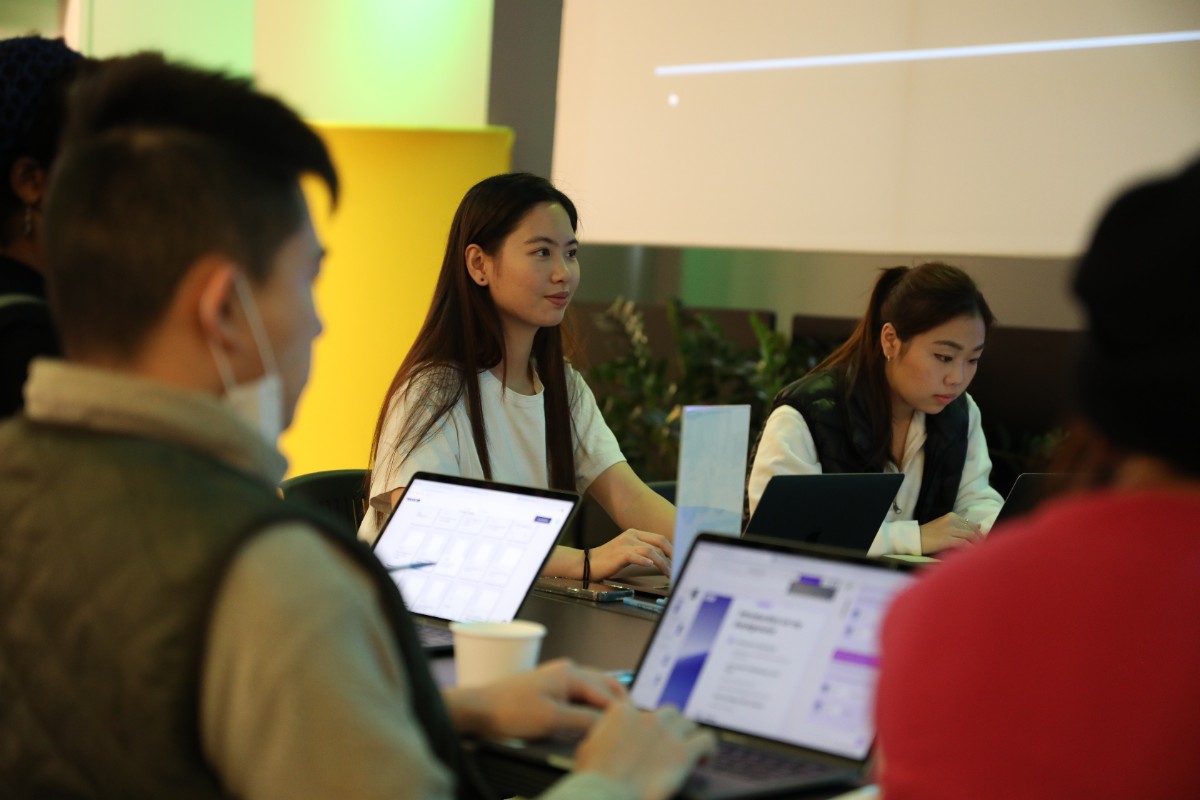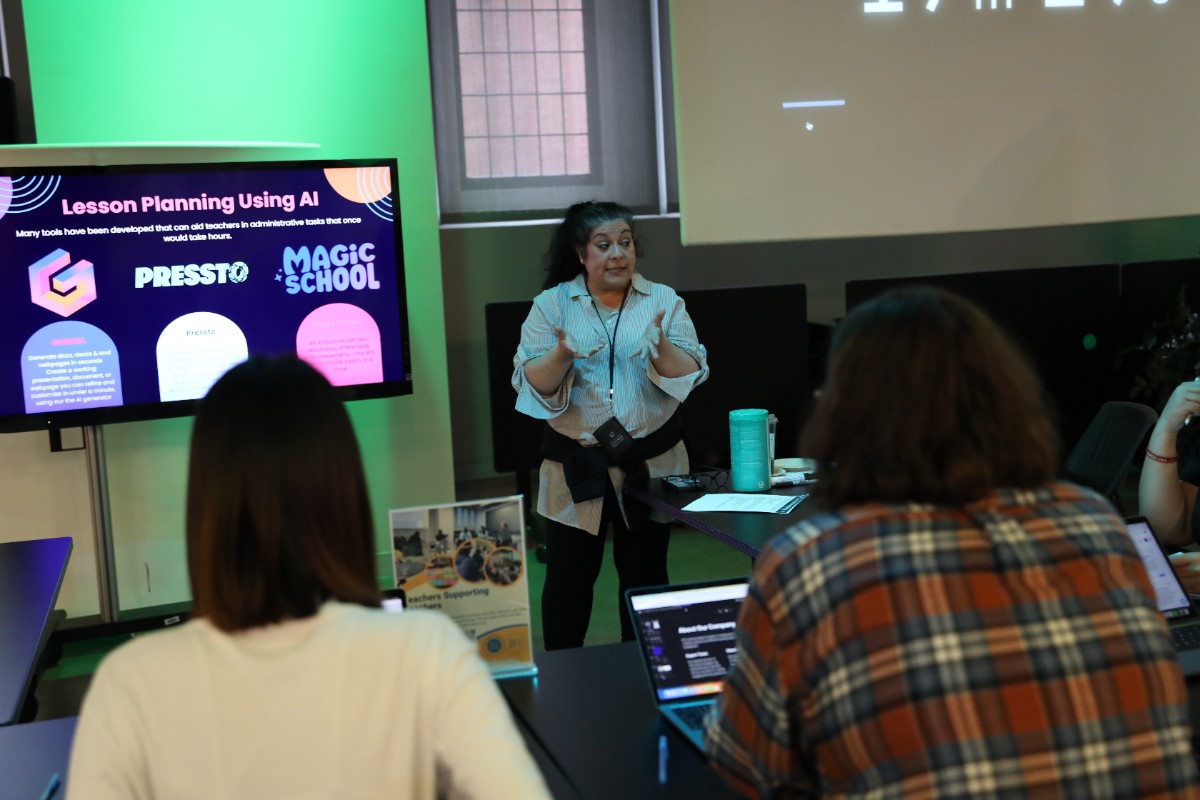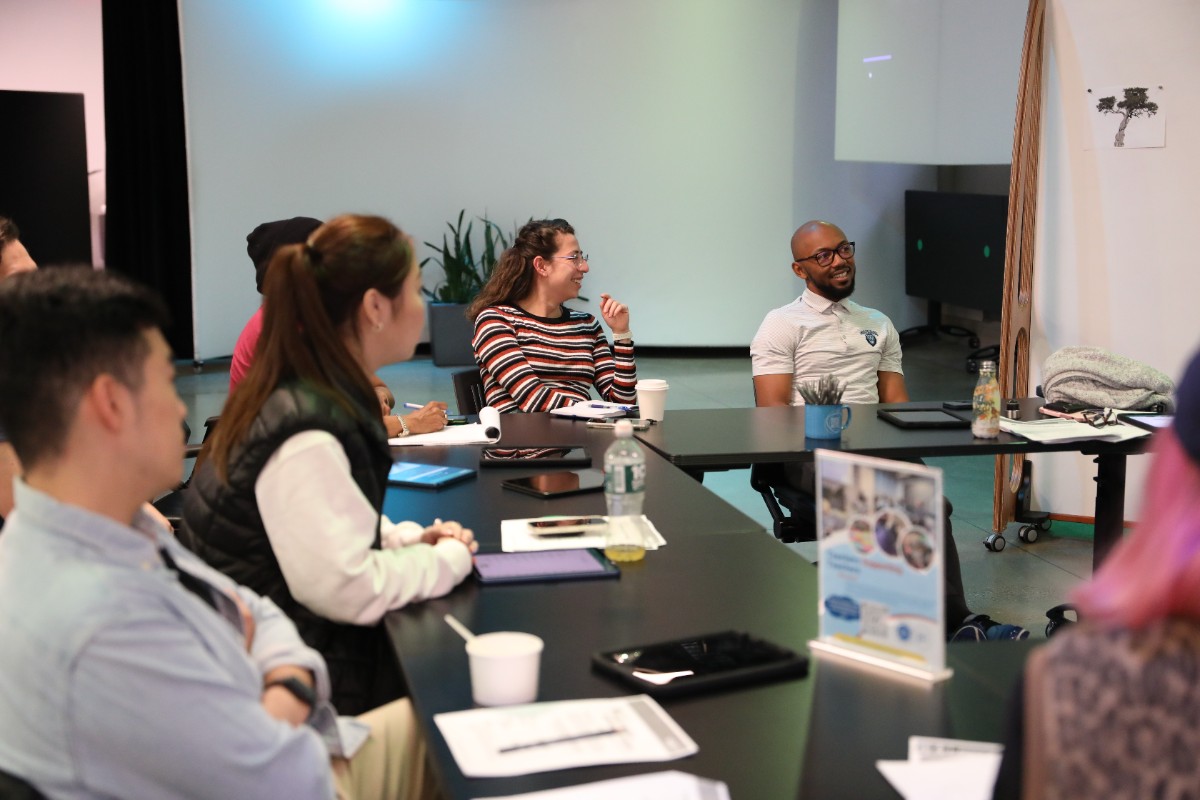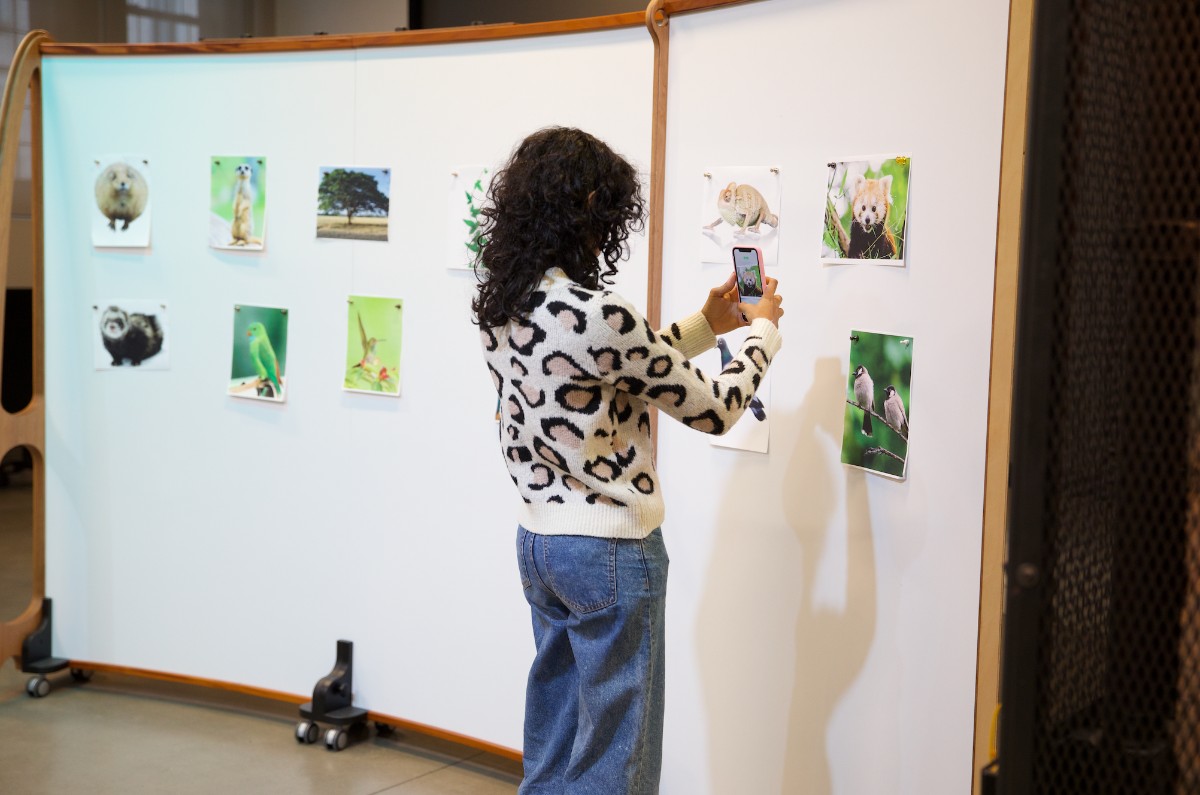As traditional classrooms see the development of cutting-edge artificial intelligence software, teachers are called upon to learn more about how AI can inform and shape classroom instruction.
Earlier this fall, teachers gathered for a dynamic, hands-on workshop on just that hosted by Teachers Supporting Teachers, a partnership initiative between TC’s Office of Teacher Education and Digital Futures Institute (DFI) that aims to bring together education students and early career teachers across New York City through continued community learning.
This innovative workshop is just one of many initiatives spearheaded by DFI, including large format, interactive exhibitions — what DFI calls Tech Playgrounds — focused on the intersection of AI technologies and K12 classroom practice. “We also plan to host more regional and district-wide AI-focused events for teachers,” shares Lalitha Vasudevan, Vice Dean for Digital Innovation and Managing Director of the Digital Futures Institute.
“Our primary goals within this workshop were to familiarize educators with AI and encourage them to connect with others along the way,” shares Clare Berends-Eitel, Associate Director of Instructional Design at Teachers College. “As artificial intelligence becomes more omnipresent in everyday life, it is essential for educators to have hands-on experience so they can appropriately help students make sense of this technology. That’s a core part of our work at DFI.”
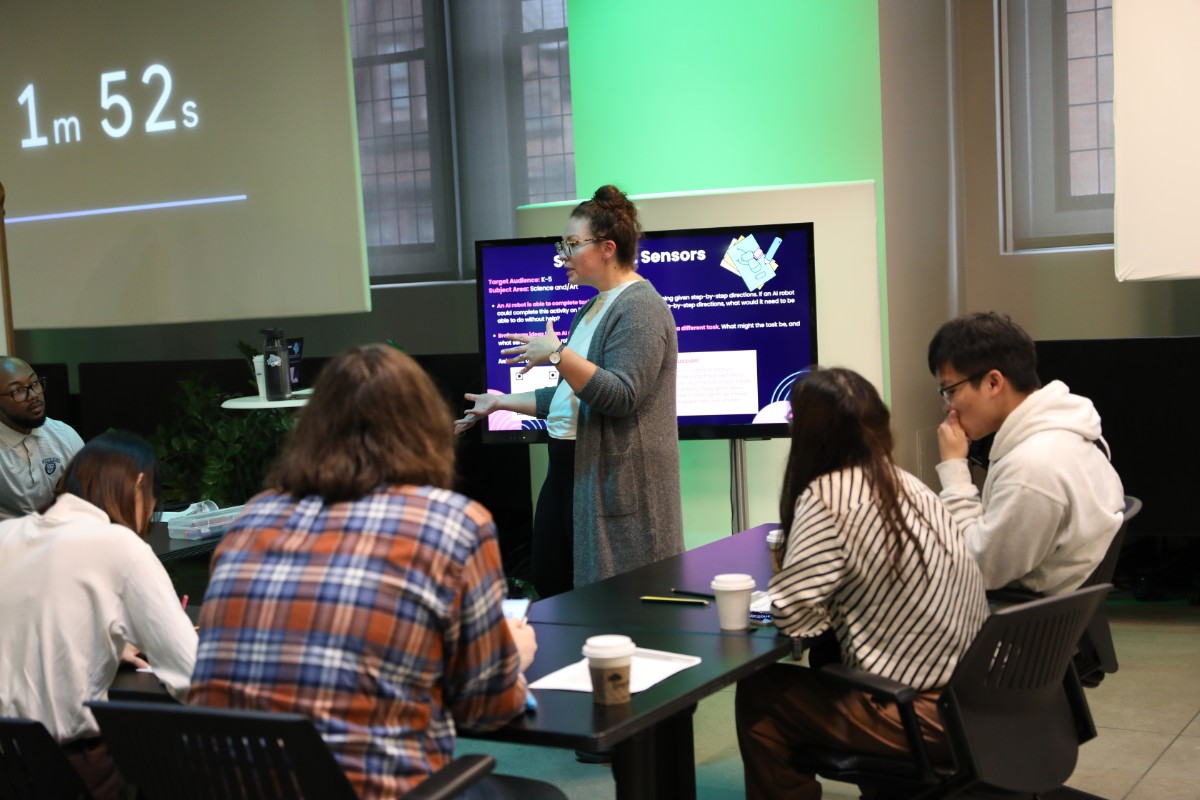
Clare Berends, Associate Director of Instructional Design at Teachers College (pictured above) led the workshop alongside fellow colleagues in the Office of Teacher Education and Digital Futures Institute (DFI). (Photo courtesy of DFI)
Meet an educator applying AI principles in the classroom, plus learn more about this work from DFI below.
Meet Mónica Zamora (M.A ‘23), Educational/Instructional Technology Program at Teachers College
Role: Primary Division Educational Technologist
Institution: The School at Columbia University
How Mónica Sees AI: “I’m looking forward to the innate potential of reaching communities of students with diverse learning needs. While the digital divide persists, with artificial intelligence at play, educators can strive to minimize the gap as much as possible.
“As a teacher, I’m a strong advocate for utilizing outreach programs that foster growth and development. The profound impact of this particular workshop has positively shaped my professional journey and heightened the engagement levels of my students.”
What Mónica Learned: “First, seek support. Being an educator is not a career an individual can do alone. Support from other people in the same field is critical. It is also worth noting that children’s cognitive development and abilities vary due to many factors, such as socioeconomic status and geographic location, so it is important to remember when deciphering feedback and suggestions when seeking support and making educator connections.”
“Next, take time to reflect. My best is enough; however, my “best’ will differ from someone else’s. Before this workshop, I often experienced burnout. I finally accepted that I wasn’t allocating my energy and time efficiently. The workshop taught me to engage in digital habit checkups; taking stock of my digital habits is crucial to a healthy work-life balance.”
[Read an article on AI & Zoom from DFI's Debbie Beaudry .]
Meet Clare Berends-Eitel, Associate Director of Instructional Design at Teachers College
Role: Primary Division Educational Technologist, Former K-12 Educator
Institution: Teachers College, Columbia University
How Clare Sees AI: "When I was teaching 5th grade, I attended a session about technology in the classroom. It emphasized that new technology is something that will always evolve throughout our lifetime. As educators, we must push ourselves to learn about and adopt these new technologies to reach our students better. Not only to explore how we can use them but to encourage students to think about AI’s impact in the future."
"It's also critical for educators to discuss AI’s environmental and societal impact. Now is the time to emphasize the importance of having your own voice and not letting technology or new advances replace that. Technology is a wonderful tool, but should be used responsibly."
What Clare is Looking Forward to Most: "As a former elementary educator of 9 years, I believe AI will assist educators in completing tasks, like lesson planning, in a much shorter, more efficient way. This will allow educators to spend more time evaluating the individual needs of their students and how to support them, rather than spending hours and hours googling lesson plans and project ideas. Generative AI allows teachers to rework curriculum for all different types of learners within merely seconds. That is a huge benefit not only to teachers feeling successful in the classroom, but to students feeling like they are supported."
